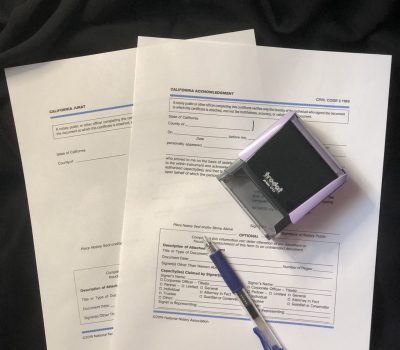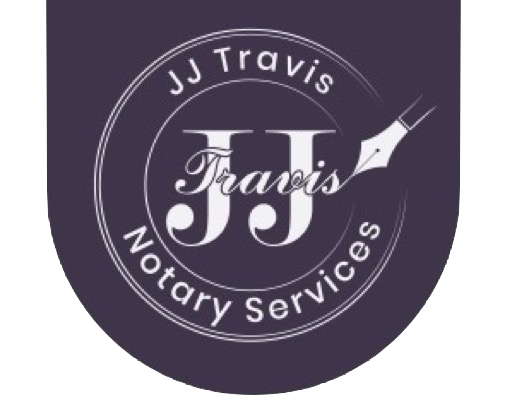
If you are in need of a document notarized, it is up to you to decide if you need an acknowledgment or jurat. If you are not sure after reading the descriptions below, ask the document originator or the individual receiving the document.
Acknowledgments
This is the most common certificate completed by a Notary Public. It is used to certify that the signer personally appeared before a Notary Public on the date and in the state and county stated on the acknowledgment certificate. The document does not have to be signed in front of the Notary Public. The Notary Public will certify your identity and that you executed/signed the document. The identity must be based on satisfactory evidence from one of the California Acceptable Forms of ID.
If the signer, also know as the principal, cannot appear before the Notary Public, a Subscribing Witness personally known to the signer can be used. This is know as Proof of Execution by a Subscribing Witness. This cannot be used for a Power of Attorney, Quitclaim Deed, Grant Deed or other instrument affecting real property. The Subscribing Witness must take an oath to swear or affirm that the signer is the person that signed the document and is personally know to them. The Subscribing Witness must have personally seen the principal sign the document or heard the principal acknowledge that the principal signed the document. The Subscribing Witness will need to provide one of the California Acceptable Forms of ID to the Notary Public.
NOTE: An acknowledgment cannot be mailed or otherwise delivered to the Notary Public for certification. The signer or subscribing witness must personally appear before the Notary Public.
Jurats
The second most common certificate completed by a Notary Public is the Jurat. It is identified by the wording "Subscribed and sworn to (or affirmed)" on the certificate. The signer must personally appear before the Notary Public and must not sign the document in advance. The signer will be administered an oath/affirmation to swear or affirm the statements in the document are true. The signer will also need to provide one of the California Acceptable Forms of ID.
Oaths/Affirmation
Sometimes only an oral oath or affirmation is needed and not as part of a Jurat, Affidavit, or other document. The purpose is to compel a client to truthfulness in a matter or issue.
Deposition Services
A Notary Public can take an oral deposition written or typed out in longhand if they are not also a certified shorthand reporter. Based on the California Civil Code, generally, a deposition is a method of providing oral or written testimony under oath outside of a court proceeding. You can have a certified shorthand reporter prepare the deposition, then have an oath/affirmation and/or a certification administered by a Notary Public.
Voting Materials
A Notary Public can notarize the signatures on the vote by mail ballot identification envelope or other voting material at no cost.
Veteran's Benefits
United States military veteran’s application or claim for a pension, allotment, allowance, compensation, insurance, or any other veteran’s benefits can be notarized by a Notary Public at no cost.
Power of Attorney Copy Certification
A Notary Public can certify copies of a Power of Attorney. A certified copy confirms that a reproduction of the original document is a full, true, and accurate transcription or reproduction of the original. A certified copy by a Notary Public had the same force and effect as the original Power of Attorney.

